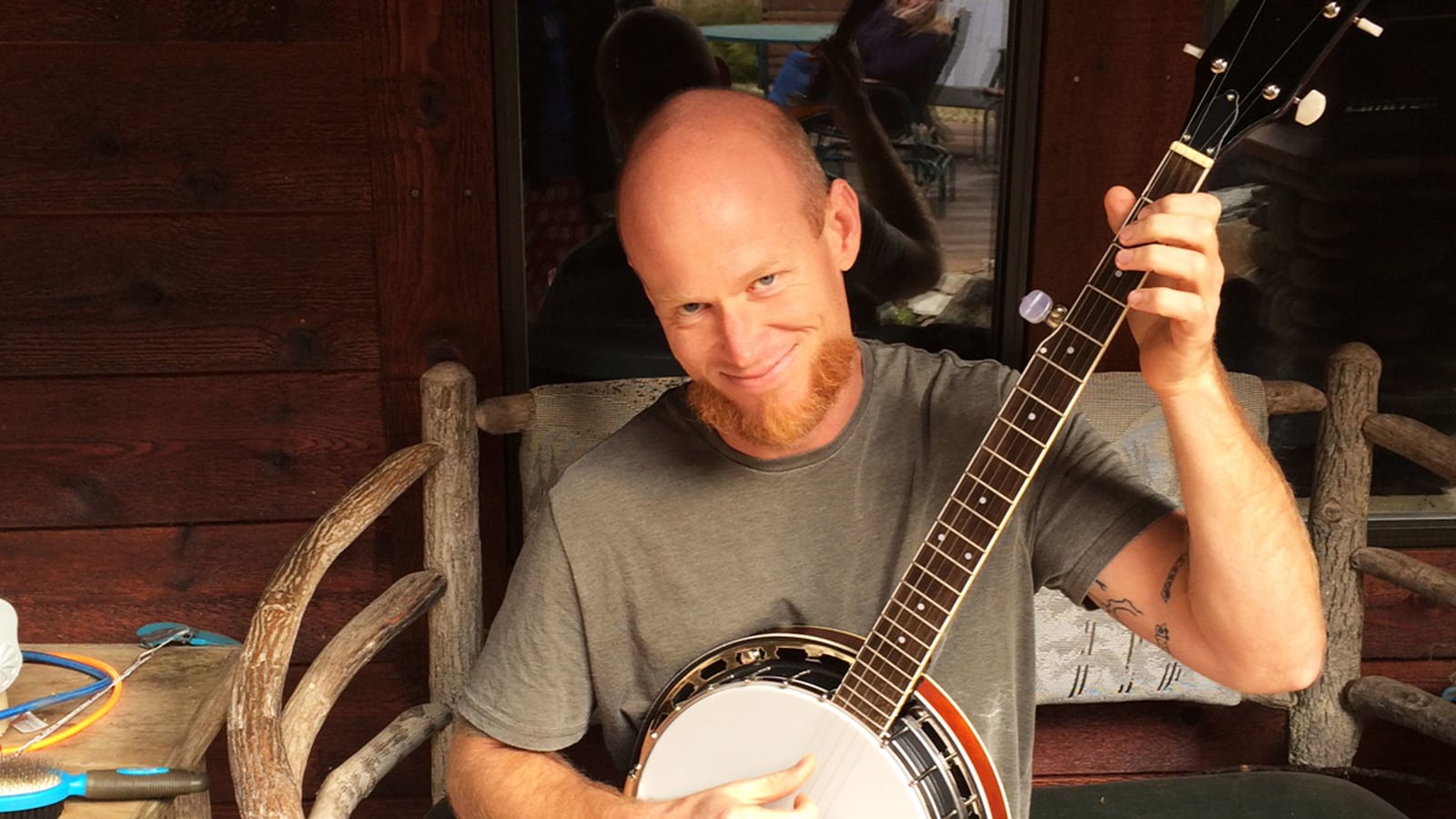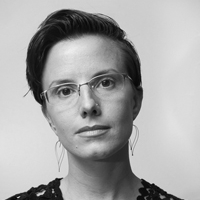Eric McDavid says a lot with his eyes. He’s constantly using his hands, too, as if feeling for the temperature of a question before answering it, stroking the air to smooth out a kink or sometimes using all five fingers to pluck and draw down the threads of his own thoughts.
Fifteen days ago, at age 36, McDavid walked out of prison after serving nearly 10 years of a 20-year sentence for “conspiracy to use fire or explosives to damage corporate and government property.” A self-proclaimed Green Anarchist, McDavid was one of a handful of young environmentalists targeted by the FBI’s war against “Eco-Terrorism” in the early 2000s.
In a rare—if not unprecedented—judicial ruling earlier this month, McDavid’s sentence was overturned. The FBI was forced to concede that they knowingly withheld thousands of pages of evidence at his trial.
These documents strengthen the case that McDavid was deliberately entrapped by a 19-year-old FBI mole that went by the name of “Anna.”
“All right, so I’m going to stumble all over this,” McDavid begins. “I got wrapped up with an FBI informant who toyed with my heart and…”
At this point, he pauses to take a deep breath. “That’s where it gets difficult to continue.”
“The most disturbing thing,” says Jenny Esquivel, “was the length to which Anna was willing to go in order to entrap them. The constant pushing, flying people across the country, providing bomb recipes. She told them she was a stripper and worked in a chemistry lab. How convenient.”
Esquivel has been McDavid’s girlfriend since a few days before his arrest in 2006. She moved from Missouri to Sacramento to help with his trial. Rather than trust the government to transcribe surveillance footage for the trial—Esquivel and McDavid’s sister, Sarah McDavid, did it themselves. Most of the footage was taken in a cabin in Dutch Flat, California, where “Anna” took McDavid and his two codefendants to attempt to coax them into a bomb plot. Unbeknownst to them, the cabin had been paid for by the FBI, stocked with food, and equipped with hidden cameras and microphones.
“In retrospect it all seems a little unbelievable,” says Esquivel. but you don’t think of that when you’re smitten with someone.”
“I wish I would have been more in balance back then,” McDavid says. “I was definitely not aware of how much my feelings could overwhelm the rational. Being influenced like that by Anna—that was the worst part.”
The FBI continues to deny any evidence of romantic tension between McDavid and “Anna,” despite emails from McDavid that contain lines like “all the endorphins shoot off in my head when ever I think of u,” and responses from “Anna” that read, “I think you and I could be great, but we have LOTS of little kinks to work out.”
The FBI even accused McDavid of threatening Anna with a knife in the middle of the night. In all the hundreds of hours of surveillance footage, there was no evidence that such an event ever took place.
“The trial wasn’t going their way so they just made it up,” says Esquivel. “There was no footage, no log—and the FBI logged every little thing. They had to find a way to turn the jury against him.”
Despite the FBI’s extensive efforts, none of the three co-defendants ever agreed to blow anything up. The two other young activists at the cabin, Zachary Jenson and Lauren Weiner, wound up accepting plea bargains and testifying against McDavid, who opted to fight the charges. Weiner served two weeks. Jenson got six months.
“I don’t want anything to do with them,” McDavid says. “You hold on to that, you get a heart attack. No thank you. I’ve got more than enough to deal with over here. I’m not gonna dance with that, too.”
Despite the political spectacle during McDavid’s trial and conviction, he says he was treated pretty much like everyone else in prison. He spent the first 28 months of his sentence in solitary confinement at California State Prison-Sacramento. McDavid was told this was due to his notoriety and the attention the case received during the trial. He was then shipped to a private facility in Victorville, run by the Correctional Association of American (CCA).
McDavid says he cried most of the first year in solitary confinement, but once he made it to Victorville he had to leave all that behind. “You learn to walk into a room,” he says, “and make sure you know what’s going on in as many directions as possible.”
Although many prisoners convicted of terrorism are held in highly restricted pods like the Control Management Unit (CMU) at ADX Colorado, McDavid was put in general population.
“It was my first rap so I only had 13 points against me,” McDavid says. “You have to have 25 to end up in a place like ADX.”
The first thing other prisoners at Victorville did was check McDavid’s record, making sure he was who he claimed to be. “In that environment, it doesn’t matter what you’re there for as long as you didn’t rat, touch a kid, or have rape in your jacket,” McDavid says. “Anything else—no one trips. If anything, I think they felt sorry for me ‘cause I got such a bad deal with no prior convictions.”
McDavid says he once noticed another white prisoner watching him as he left the shower. “I realized I couldn’t let him get away with looking at me that way, it was too much attention at one time. I had to get dressed, put my boots on, and confront him right away. I went downstairs, walked right up to him, and looked him in the eye. ‘You alright?’ I asked. The dude stood up, he was like 6’8, 260 pounds. ‘Yeah, we’re cool,’ he says. And that was it. He just sat back down and it was over.”
McDavid says he was never raped or sexually assaulted himself, but he witnessed other men being preyed upon and abused. It was enough to make McDavid, in jail on a bum rap, ready to contemplate something that might have increased his jailtime.
“There was this one guy, he was openly non-hetero, chilled with everybody, then this older guy came down from the pen and celled up with him. I didn’t recognize the signs until later,” he says. "The only way to really handle it would have been for somebody to stab him, and that could have made them a target. But if they'd handled it quick, without getting caught, there wouldn’t have been anyone left to say anything. That’s one thing I still think about.”
During his six years in general population at Victorville, McDavid avoided white supremacist gangs. He lived through a riot but was in the commissary at the time, so all he saw were the pools of blood left behind. He was able to decrease his points from 13 to 10 with good behavior and was transferred to Terminal Island in Southern California, the type of low-security facility often referred to as a “camp.”
“It was fuckin’ Disneyland,” McDavid says. “At Victorville there was a ‘wire’ running through the whole place, like how the trolleys run in San Francisco; it was the pulse of the place and if you attached to it you could feel it when tension was building, when something was about to go down,” he says. “At Terminal Island, at first, I was freaked out because I couldn’t feel what was happening. Then I realized it was because nothing was happening.”
McDavid’s path to get out of prison entirely started seven years ago, but his release happened fast. Jenny Esquivel and her colleague Evan Tucker at Sacramento Prisoners Support filed a Freedom of Information Act (FOIA) request in 2008 asking for any FBI’s documents on McDavid’s case.
In 2010, when thousands of heavily redacted pages started showing up, they knew they might have a chance of getting McDavid out.
“But it wasn’t until two weeks ago—the very day they let Eric go—that we really knew it was happening,” says Esquivel.
For the last two weeks Esquivel and McDavid have been staying at his parents’ cabin in the woods of Foresthill, CA.
“For nine years I had to constantly check in with myself,” Esquivel says. “If Eric and I break up two days after he gets out, will all this still have been worth it? The answer was always ‘yes.’ And it was because all these years, our relationship has always been reciprocal. He’s been feeding me, too, emotionally and spiritually. We had to live day to day, with no future expectations.
“It’s very Zen in a way,” she say, laughing, “but definitely no fun at all.”
In order to be released, McDavid had to plead guilty to a lesser conspiracy charge and promise never to appeal or sue the government for damages. And McDavid says his beliefs haven’t changed much over his decade in prison. He remained vegan, in even prison. And he says he’s not particularly bitter towards the FBI.
“They’re not acting in any way that’s surprising,” he says. “They’re doing what they do—what they’ve always done.”
Now, in a cabin with her boyfriend, freed, Esquivel is fighting with McDavid to end the residual battles that come with a decade spent wrongly imprisoned.
“Real life has kicked in. Eric needs to get his money back from the Bureau of Prisons. There’s a deadline for him to enroll in school,” says Esquivel. “I’d just like for us to have two days together, with no interruptions.”






